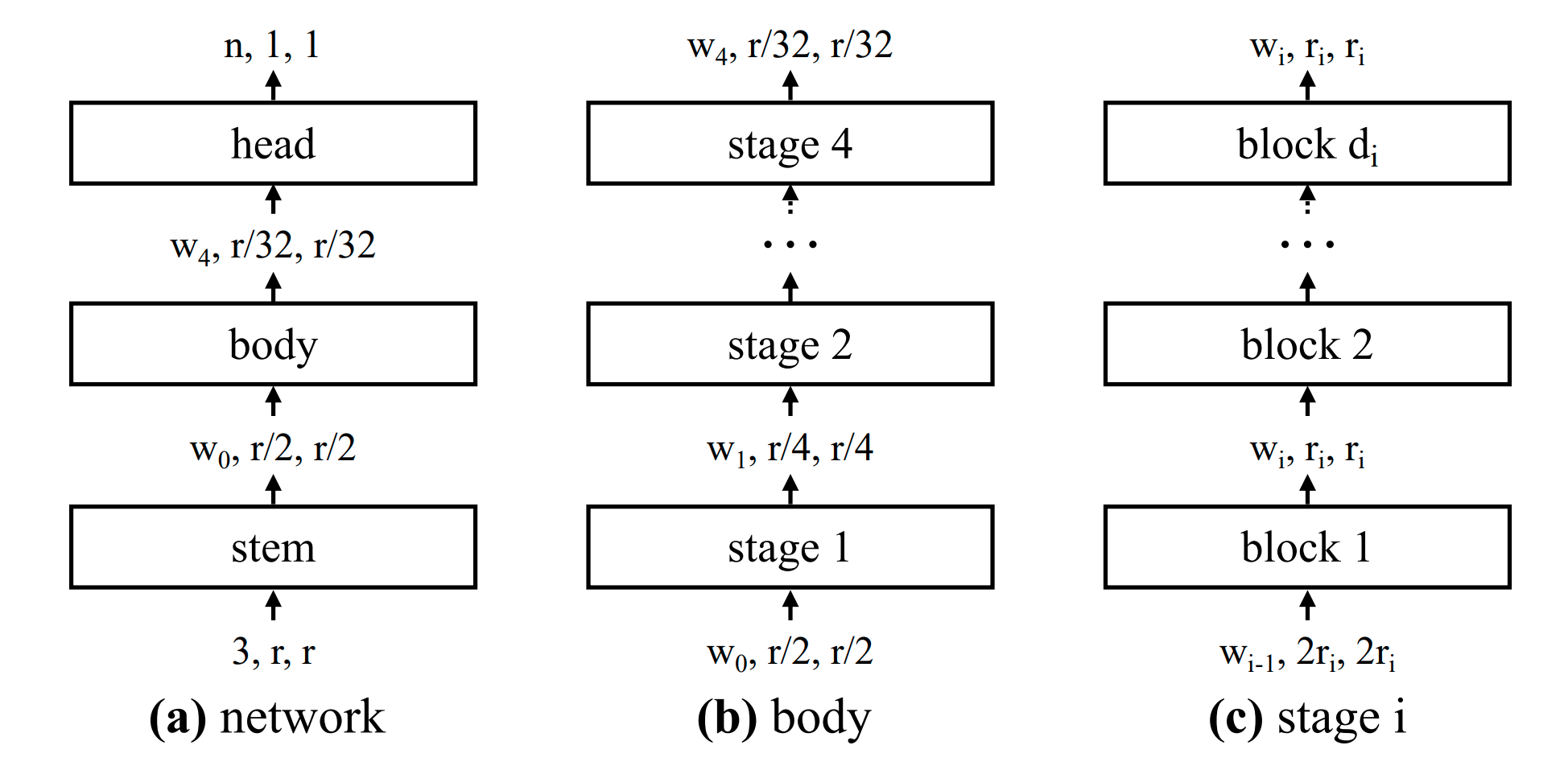File size: 2,316 Bytes
2fa8920 |
1 2 3 4 5 6 7 8 9 10 11 12 13 14 15 16 17 18 19 20 21 22 23 24 25 26 27 28 29 30 31 32 33 34 35 36 37 38 39 40 41 42 43 44 45 46 47 48 49 50 51 52 53 54 55 56 57 58 59 60 61 62 63 64 65 |
---
license: apache-2.0
tags:
- vision
- image-classification
datasets:
- imagenet-1k
widget:
- src: https://huggingface.co/datasets/mishig/sample_images/resolve/main/tiger.jpg
example_title: Tiger
- src: https://huggingface.co/datasets/mishig/sample_images/resolve/main/teapot.jpg
example_title: Teapot
- src: https://huggingface.co/datasets/mishig/sample_images/resolve/main/palace.jpg
example_title: Palace
---
# RegNet
RegNet model trained on imagenet-1k. It was introduced in the paper [Designing Network Design Spaces](https://arxiv.org/abs/2003.13678) and first released in [this repository](https://github.com/facebookresearch/pycls).
Disclaimer: The team releasing RegNet did not write a model card for this model so this model card has been written by the Hugging Face team.
## Model description
The authors design search spaces to perform Neural Architecture Search (NAS). They first start from a high dimensional search space and iteratively reduce the search space by empirically applying constraints based on the best-performing models sampled by the current search space.

## Intended uses & limitations
You can use the raw model for image classification. See the [model hub](https://huggingface.co/models?search=regnet) to look for
fine-tuned versions on a task that interests you.
### How to use
Here is how to use this model:
```python
>>> from transformers import AutoFeatureExtractor, RegNetForImageClassification
>>> import torch
>>> from datasets import load_dataset
>>> dataset = load_dataset("huggingface/cats-image")
>>> image = dataset["test"]["image"][0]
>>> feature_extractor = AutoFeatureExtractor.from_pretrained("zuppif/regnet-y-040")
>>> model = RegNetForImageClassification.from_pretrained("zuppif/regnet-y-040")
>>> inputs = feature_extractor(image, return_tensors="pt")
>>> with torch.no_grad():
... logits = model(**inputs).logits
>>> # model predicts one of the 1000 ImageNet classes
>>> predicted_label = logits.argmax(-1).item()
>>> print(model.config.id2label[predicted_label])
'tabby, tabby cat'
```
For more code examples, we refer to the [documentation](https://huggingface.co/docs/transformers/master/en/model_doc/regnet). |